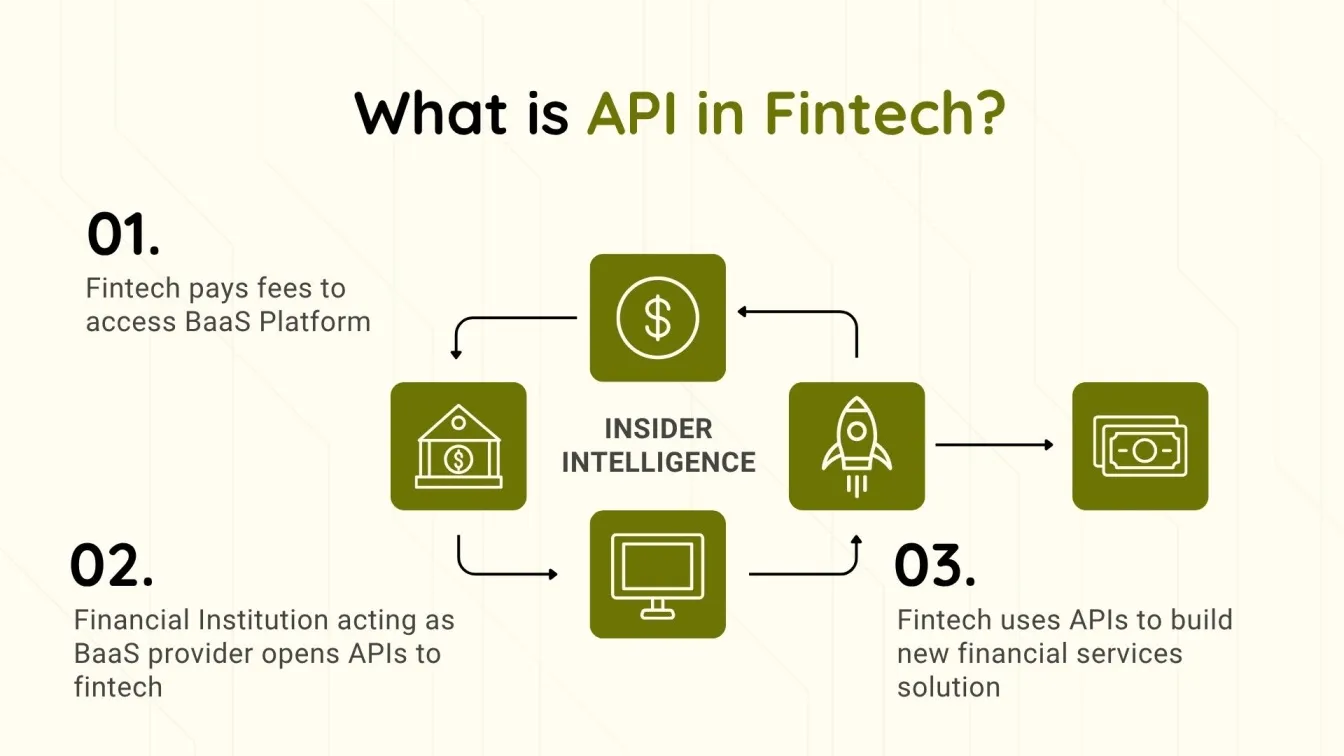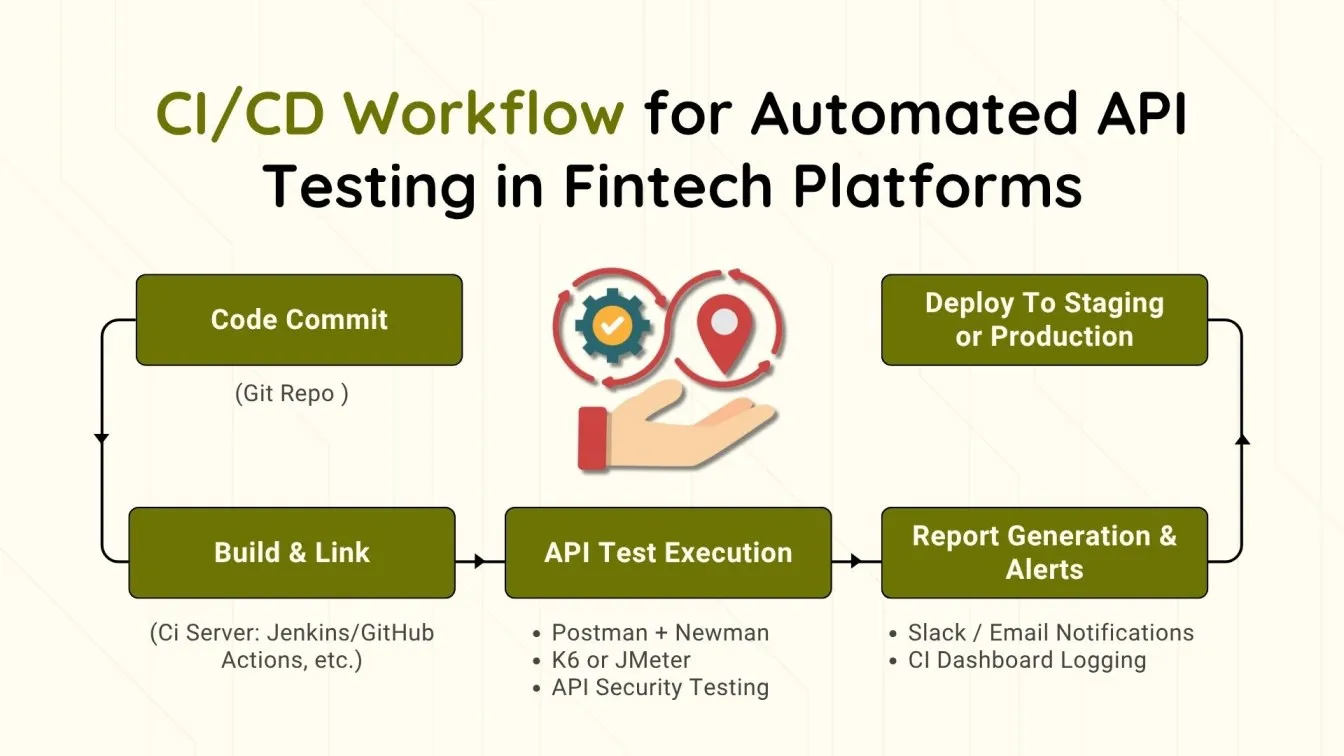Fintech platforms like Razorpay and PayPal depend on fast, secure, and scalable APIs to power real-time payments, KYC checks, and seamless user experiences. Platform dependability depends on ensuring API performance and quality, which is where API testing comes into play.
From REST API validation to automation with Postman and CI/CD pipelines, modern fintech teams adopt an API-first strategy to support features like dynamic payments, biometric authentication, and currency handling. This blog explores how leaders like Razorpay and PayPal maintain API integrity at scale and how you can adopt similar practices.
💡 Here’s what you’ll learn:
📌 How API testing enables scalability and real-time performance in fintech.
📌 The importance of API security and authentication.
📌 Tools like Postman and CI/CD pipelines for automated API testing.
📌 The role of mocking, virtualization, and audit logging.
📌 Real-world tactics from Razorpay and PayPal on API versioning and compliance.
Why API Testing is Essential for Scalable Fintech Platforms Like Razorpay and PayPal
In the world of digital finance, fintech platforms like Razorpay and PayPal rely heavily on APIs to manage complex operations such as payment processing, KYC verification, and third-party banking integrations. These platforms demand scalability, security, and speed, making API testing a core component of their development and deployment cycles.
Fintech systems typically experience high volumes of API calls during peak hours. Without rigorous API performance testing and load testing, issues such as latency, data loss, or service downtime can emerge, directly impacting user trust and brand reputation. Tools like Postman API Testing, K6, and REST API testing tools help validate API reliability before deployment.

Another key driver for API testing is regulatory compliance. Since fintech platforms handle sensitive financial and personal data, robust API security testing is mandatory to protect against data breaches. Comprehensive testing also helps platforms adhere to KYC compliance and AML requirements across jurisdictions.
Seamless API integration with third-party services is also a pillar of modern fintech infrastructure. Continuous integration testing within CI/CD pipelines ensures that updates to services like Razorpay Payment Gateway or PayPal Credit don’t introduce regressions or break existing functionalities.
Core Fintech APIs That Need Rigorous Testing: Payments, KYC, Compliance, and More
Fintech platforms like PayPal, Razorpay, and Synapse rely on multiple interconnected APIs to power essential functions like payments, KYC verification, AML compliance, and account linking. Rigorous and continuous API testing is critical to ensure these services remain secure, fast, and compliant across various integrations.

Types of fintech APIs that demand rigorous testing and monitoring:
1. Payment Gateway APIs:
- Used by platforms like Razorpay, PayPal, and Stripe Payment API.
- Must handle real-time transactions with high availability and precision.
- Require performance testing, load testing, and CI/CD-integrated API automation testing.
- API security tools are essential to detect fraud and injection attacks.
2. KYC and Identity Verification APIs:
- APIs that handle KYC documents, KYC verification, and AML compliance need strict validation.
- Testing ensures the correct parsing of user-submitted data and the secure transmission of sensitive information.
- Must meet KYC compliance mandates from regulators (e.g., RBI, FCA).
3. Compliance & Fraud Detection APIs:
- Fraud prevention APIs must integrate with transaction data, user behavior, and blacklist databases.
- Continuous testing ensures threat models evolve as attack surfaces change.
- These APIs must pass security testing and handle edge-case scenarios like false positives.
4. Account Linking and API Integration Services:
- Used to connect banks, digital wallets, and third-party data aggregators.
- Require end-to-end API integration testing to ensure data consistency across systems.
- Tested for data loss, downtime during CI/CD deployments, and latency issues.
Load and Performance Testing for High-Volume Fintech Transactions
Fintech platforms like Razorpay, PayPal, and Stripe must process millions of payment API transactions every day, often within milliseconds. Any delay, failure, or bottleneck directly impacts financial operations and user trust. That’s why load testing and performance testing are indispensable for building scalable and resilient fintech systems.

Why Load & Performance Testing Matter in Fintech:
- High Traffic Volumes: During peak times, fintech platforms can experience traffic surges.
- Load testing tools simulate thousands of concurrent users to assess stability.
- API load testing tools measure how payment and KYC APIs respond under pressure.
- Micro-transaction Speed: Platforms like UPI, PayPal Credit, or Razorpay Payment Gateway must process small transactions in real time.
- K6 performance testing helps evaluate how quickly these micro-transactions are confirmed.
- Performance testing tools ensure APIs don't lag or timeout.
- CI/CD Integration: By embedding performance tests into CI/CD pipelines, fintech teams can catch issues early during builds.
- This prevents slowdowns in production and supports continuous testing.
- Global Reach & Load Balancing: APIs must handle traffic from different geographies with consistent speed.
- Load testing services simulate regional traffic patterns and test latency.
- Tools also evaluate infrastructure auto-scaling under traffic peaks.
Securing Fintech APIs: Authentication, Encryption, and Regulatory Compliance
The foundation of any effective fintech platform is Security. APIs that handle payments, user accounts, and sensitive personal data are prime targets for cyberattacks. Platforms like Razorpay, PayPal, and Synapse must implement strong API security practices to meet global standards and build user trust.

Key Components of API Security in Fintech:
1. Authentication and Authorization:
- Enforce token-based authentication (OAuth 2.0, JWT) to validate users and systems.
- Use API security tools to manage and rotate keys automatically.
- Separate roles and permissions in web API security layers to prevent privilege escalation.
2. Data Encryption in Transit and at Rest
- All fintech API integration flows must use TLS/SSL to encrypt data during transmission.
- Encrypt stored data such as KYC documents, transaction logs, and PayPal account details using industry-standard algorithms.
- Apply address validation APIs and email validation APIs in secure channels to prevent spoofing and injection attacks.
3. Regulatory Compliance
- Comply with standards like PCI-DSS, GDPR, RBI Guidelines, and KYC AML frameworks.
- Use API security solutions to log, monitor, and audit all access to payment and KYC endpoints.
- Integrate compliance checks into CI/CD workflows to automate the enforcement of data protection rules.
4. Security Testing & Monitoring
- Perform regular API security testing for OWASP top 10 vulnerabilities, including injection and broken access control.
- Use automated tools to simulate attacks and detect security gaps in live and staging environments.
- Enable real-time monitoring with alert systems for suspicious API activity in payment gateway APIs and KYC APIs.
CI/CD Integration and Automation of Fintech API Testing
In the fast-paced world of fintech, where updates are frequent and user expectations are high, integrating API testing into CI/CD pipelines is no longer optional; it's critical. Automation ensures that every code change, feature release, or infrastructure update doesn’t break core services like payments, KYC, or user onboarding in platforms such as Razorpay, PayPal, and Synapse Fintech.

Benefits of CI/CD-Driven API Test Automation in Fintech:
- Faster Release Cycles:
Automating API testing during continuous integration helps catch issues early, reducing testing delays and accelerating deployments. - Consistent Quality at Scale:
Whether it's testing Razorpay login, PayPal Credit, or KYC APIs, automation ensures consistent coverage across staging, QA, and production environments. - Risk-Free Updates:
API automation testing tools integrated into pipelines reduce the chances of broken endpoints affecting payment APIs or user accounts after releases. - Parallel Execution:
Tools like Postman CLI (Newman) and CI runners (GitLab, Jenkins, Azure DevOps) enable simultaneous testing across multiple APIs, shortening test time and improving efficiency. - Trigger-Based Testing:
API tests are triggered automatically on pull requests, branch merges, or scheduled runs, supporting true continuous testing and compliance enforcement.
Mocking and Virtualization of Third-Party APIs in Fintech Ecosystems
In scalable fintech platforms like Razorpay and PayPal, mocking and virtualization of third-party APIs are crucial for effective API testing and smooth API integration.
Fintech applications depend heavily on external services such as payment APIs (including Stripe Payment API, Razorpay Payment Gateway, and PayPal APIs), KYC verification providers, and various validation APIs like address and email validation.
Directly interacting with these real APIs during development and testing can cause instability, increased costs, and potential security risks.
By using API mocking and virtualization, developers simulate these third-party services in a controlled environment, enabling reliable and cost-effective testing. This approach supports the use of API automation testing tools and facilitates continuous integration testing in CI/CD pipelines, helping teams perform rigorous performance testing and load testing without relying on live endpoints.
Mock APIs also help fintech teams test complex KYC compliance workflows safely, ensuring sensitive KYC documents and customer data remain protected. Additionally, mocking allows fintech platforms to maintain high standards of API security testing, isolating virtual APIs to prevent exposure of vulnerabilities from external systems. Overall, mocking and virtualization are essential strategies in fintech API ecosystems to accelerate development, ensure stable API lifecycle management, and deliver secure, scalable financial services.
Real-World Examples: How Razorpay and PayPal Ensure API Quality at Scale
Razorpay and PayPal both maintain high API quality using robust testing, platform extensibility, and secure digital ecosystems.
Razorpay, a leading Indian fintech platform, uses Postman API collections, webhook verification, and automated integration testing to validate workflows like payment transfers, KYC & identity verification, and QR code payments. Features like IP whitelisting, biometric verification, and real-time payment analytics improve fraud detection and user experience.
PayPal, operating at a global scale, handles massive volumes with strict authentication & authorization, session storage practices, and support for digital currencies, smart thermostats, and Booking Systems. It ensures currency precision, protects transaction history, and enforces version control across all Open Banking APIs. Secure payment methods are validated via security protocols, biometric scans, and detailed audit logs.
Both platforms rely on CI/CD pipelines, API-first development, and strong security infrastructure to deliver scalable, compliant, and reliable payment integration experiences.
People Also Ask
👉 What challenges do fintech companies face when testing APIs in real-time payment systems?
Fintech companies must handle high concurrency, low latency, and API security, making real-time load simulation and response validation essential.
👉 How do API testing strategies differ between startups and enterprise fintech platforms like PayPal?
Startups focus on rapid iterations and lightweight API automation, while enterprise platforms like PayPal use advanced test orchestration, CI/CD pipelines, and security compliance testing across distributed systems.
👉 Can API testing help prevent transaction failures and chargeback issues in fintech apps?
Yes, API testing ensures accurate transaction flows, response validation, and error handling to reduce failed payments and minimize chargeback incidents in fintech applications.
👉 What role does test data management play in effective API testing for fintech applications?
Effective test data management enables realistic simulation of user behavior, transaction patterns, and edge cases, ensuring secure and compliant API testing in fintech platforms.
👉 Which metrics help measure the effectiveness of fintech API testing?
Key metrics include API response time, error rate, test coverage, throughput, and the number of defects detected pre-deployment, all crucial for measuring fintech API test success.



.webp)

%201.webp)

